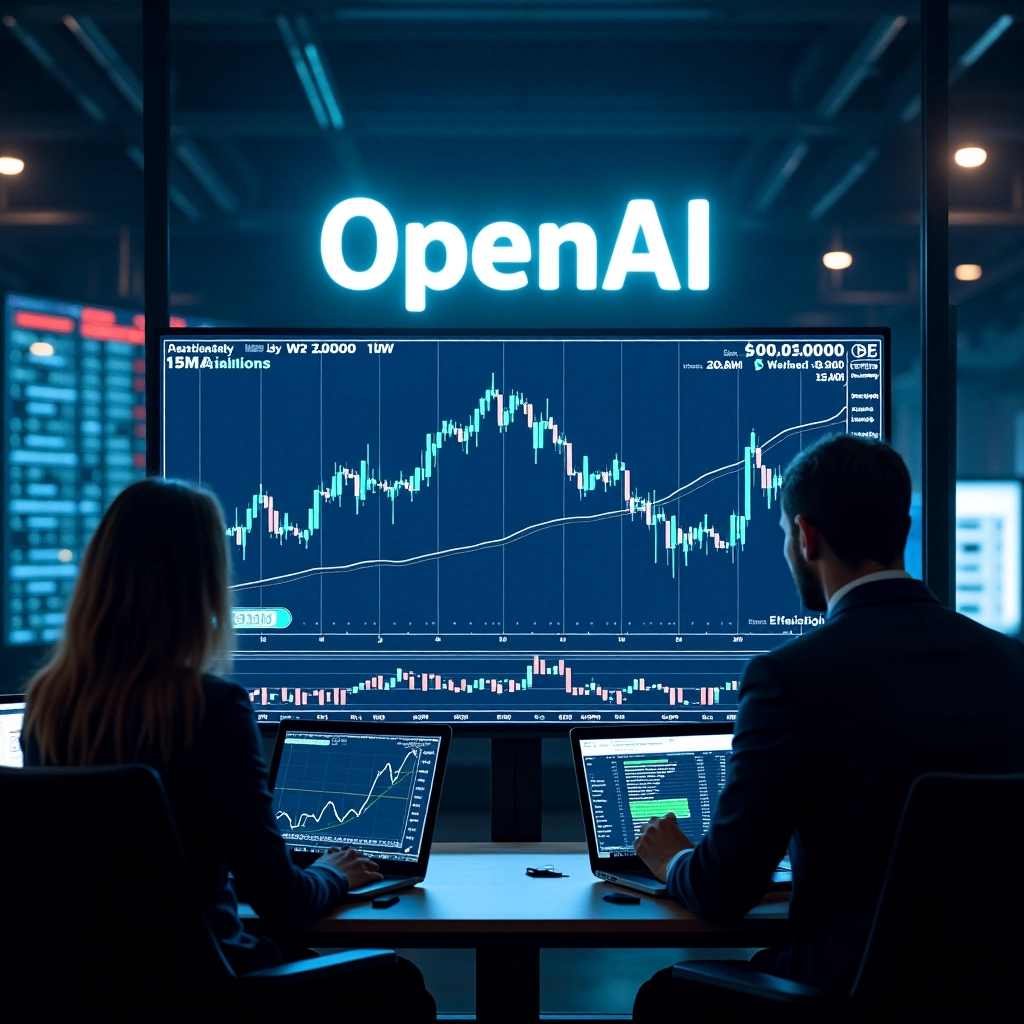
OpenAI’s Valuation Surges Beyond $100B on the Secondary Market
The valuation of OpenAI, a leading artificial intelligence research and deployment company, has remarkably surpassed $100 billion on the secondary market. This surge reflects the intense investor interest and confidence in the future potential of AI technologies. Let’s delve deeper into what this means for OpenAI and the broader AI industry.
Investors Eager to Bet Big on AI
The secondary market, where stakeholders buy and sell pre-existing investor interests in private companies, has witnessed a significant uptick in demand for OpenAI shares. Investors, driven by the burgeoning success of ChatGPT and other AI innovations by OpenAI, are showing an unprecedented willingness to invest heavily.
The Appeal of OpenAI’s Innovations
OpenAI’s rapid advancements, particularly its flagship product, ChatGPT, have captured global attention. The robust performance, adaptability, and potential applications of these AI tools across various sectors make OpenAI a lucrative prospect for investors.
A Look at the Investors’ Profiles
The secondary market surge is driven not just by venture capitalists, but also by institutional investors, hedge funds, and even high-net-worth individuals who foresee a significant return on investment in the AI sector.
What This Valuation Surge Means for OpenAI
The surpassing of the $100 billion mark is not just a numerical milestone. It signifies a strong market validation for OpenAI and underscores the broader tech industry’s confidence in AI’s transformative potential.
Funding for More Innovations
With the increased valuation, OpenAI is likely to attract more funding, which can be channeled into further research and development. This influx of capital could accelerate the development of more sophisticated AI models and tools, thus reinforcing OpenAI’s market leader position.
Attracting Top Talent
High valuations also enable companies to offer competitive compensation packages, which are crucial for attracting and retaining top talent. As AI continues to evolve, having the best minds on board will be vital for OpenAI’s mission of ensuring that artificial general intelligence benefits all of humanity.
The Broader Implications for the AI Industry
The ripple effects of OpenAI’s valuation surge are likely to impact the entire AI industry. Increased investor confidence can result in more funding opportunities for other AI startups, thereby fostering a more dynamic and robust AI ecosystem.
Setting Benchmarks
OpenAI’s success story sets a benchmark in the industry, indicating to other companies that substantial investments in research and innovation can yield high returns. This can lead to an arms race in AI advancements, benefiting end-users with more sophisticated and efficient tools.
Ethical Considerations and Regulatory Frameworks
As investment in AI grows, so does the responsibility to address ethical considerations. OpenAI and similar companies must navigate the balance between innovation and ethical deployment, ensuring regulatory frameworks evolve to manage AI’s capabilities responsibly.
Future Prospects for OpenAI
Looking ahead, OpenAI’s path seems promising. With the new valuation, the company can explore uncharted territories in AI, maintaining its competitive edge while adhering to its ethical guidelines.
Expansion of AI Applications
We can expect OpenAI to broaden its horizon beyond text-based AI. Potential areas of expansion could include more advanced robotic systems, sophisticated predictive analytics tools, and AI-driven automation systems across various industries.
Global Collaboration and Integration
An increased focus on global collaboration will be essential for OpenAI. By partnering with other tech giants, academic institutions, and governments, OpenAI can ensure the development of AI technologies that are inclusive and beneficial on a global scale.